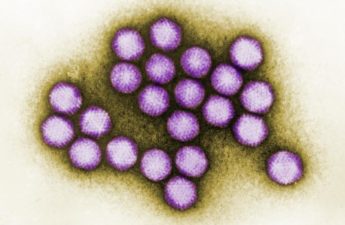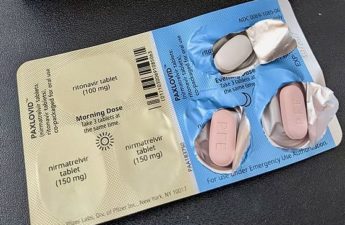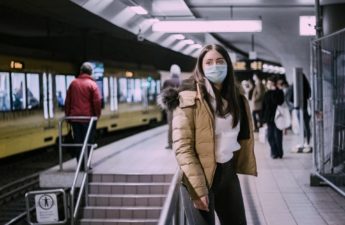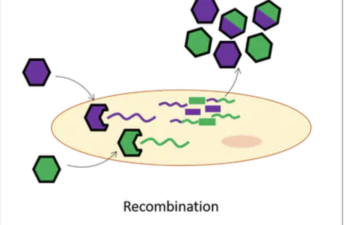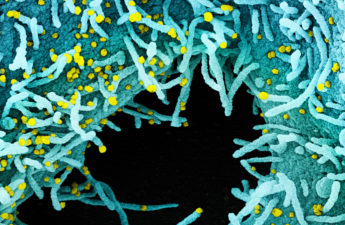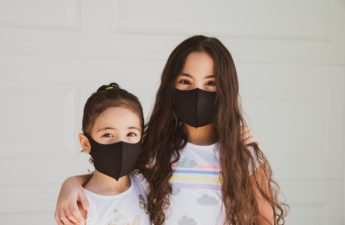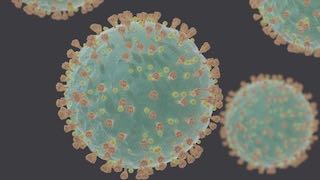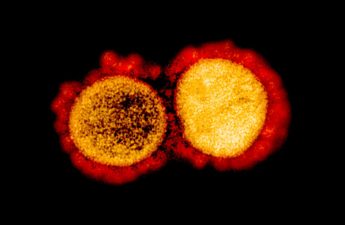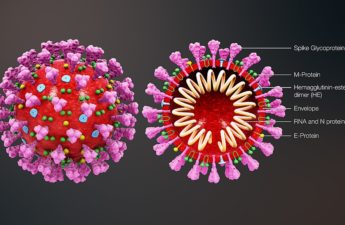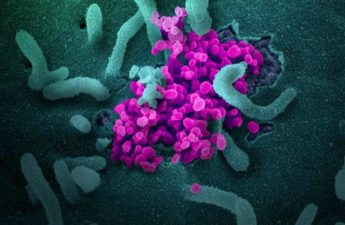Category: Coronavirus
Hepatitis outbreak in children: explainer on adenovirus type 41, the possible culprit
One suspect is infection by an adenovirus. Adenoviruses are a large group of viruses that can infect a wide range of animals as well as humans. They got their name from the tissue they were initially isolated from: the adenoids (tonsils).
What is Paxlovid and how will it help the fight against coronavirus?
An infectious diseases physician answers questions on the COVID-19 pill
Should you wear a mask on a plane, bus or train when there’s no mandate? 4 essential reads to help you decide
Daniel Merino, The Conversation On April 18, 2022, a judge in Florida struck down the federal mandate requiring passengers on mass transit to wear masks. While the U.S. Centers for Disease Control and Prevention still recommends that passengers mask up…
Regaining fitness after COVID infection can be hard
Here are 5 things to keep in mind before you start exercising again
Small Towns Drew Most New Pandemic Residents
In states around the country, people who moved early in the pandemic were attracted to wide-open spaces in relatively obscure towns rather than the big cities that had attracted millennials in the previous decade. The moves may have brought welcome money to smaller towns, but they also raised housing prices and changed the bucolic way of life that attracted residents in the first place. And in the past year, moving patterns largely have reverted to pre-pandemic trends.
Omicron XE is spreading in the UK – a virologist explains what we know about this hybrid variant
Recombination occurs when two different variants infect the same cell, in the same person, at the same time. From there, they can combine their genetic material, resulting in a virus that possesses a mix of genes from both infecting “parent” viruses. This recombinant variant may then spread to other people – as has been the case with omicron XE.
Second COVID-19 booster dose recommended for certain individuals
People age 50 and older and certain immunocompromised individuals can now get a second booster dose of an mRNA (Pfizer-BioNTech or Moderna) COVID-19 vaccine at least four months after receiving their initial booster dose.
What’s next with face masks?
Keep wearing them in public, wear the best mask available and pay attention to fit.
BA.2 subvariant causing nearly 1 in 4 new COVID cases tested in UW virology lab
A subvariant of omicron responsible for a wave of new COVID-19 cases in parts of Europe and Asia is also gradually spreading in the United States, including in Washington state.
What is the new COVID-19 variant BA.2, and will it cause another wave of infections in the US?
BA.2 is the latest subvariant of omicron, the dominant strain of the SARS-CoV-2 virus that causes COVID-19. While the origin of BA.2 is still unclear, it has quickly become the dominant strain in many countries, including India, Denmark and South Africa. It is continuing to spread in Europe, Asia and many parts of the world.
How does the immune system mobilize in response to a COVID-19 infection or a vaccine? 5 essential reads
We sought out scholars who could take our readers on deep dives into immunology and virology to help demystify these sometimes confusing, conflicting and taxing science-based questions. Here are five stories from The Conversation’s archives that highlight critical insights that we as editors and readers have gained thanks to COVID-19, and that will no doubt continue to be an important part of our pandemic lexicon.
COVID-19 and the brain
Even mild cases of COVID-19 can leave a mark on the brain, such as reductions in gray matter – a neuroscientist explains emerging research.
What King County’s mask mandate rollback means for you
Starting Saturday, March 12, King County will stop requiring masks in many indoor public spaces. Individuals will now be able to make their own choices as to whether they want to continue wearing masks, and businesses may decide whether they want to require employees and customers to wear masks. In practice, what does this mean for you?
No, you cannot ‘devaccinate’ yourself with snake venom kits, bleach or cupping
If you encounter claims like this online, you need to ask yourself four questions, to figure out whether these claims really are too good to be true.
King County marks two years of COVID outbreak, looks ahead to next phase of pandemic response
King County has gone from the epicenter of the outbreak, to now one of the nation’s highest vaccinated communities with the some of the lowest cases and death rates two years later.
